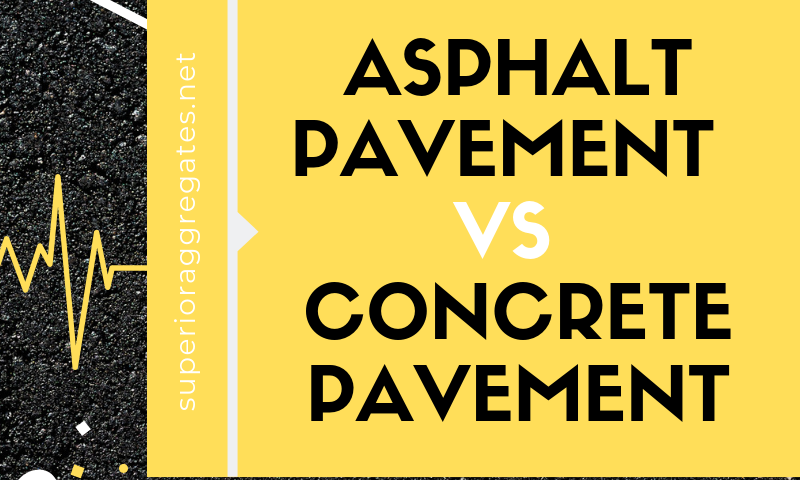
How to find the best concrete maintenance contractors?
Hiring the best concrete maintenance contractor is not always simple. You want a contractor who is honest, dependable, and qualified for the job at hand. Make sure you are asking the right questions when you interview a company. If you don’t, you could be paying more than expected, and the job may take longer than you want.
Here are 5 ways to choose the right concrete maintenance contractor for the job.
- Ask to see their portfolio. When you are doing your research, make sure to check the contractor’s portfolio. The right contractor will be able to show you a gallery of photos. You will have the chance to see their most recent work and get a better idea of what they can offer you. You will be able to check their services and get an idea of what to expect from a final project. Their portfolio will allow you to visualize what they can do for you and your home, and maybe even give you some new ideas.
- Look for a contractor with experience. Generally, you should look for a contractor with at least five years of professional experience. This will demonstrate that they are reliable and will provide you with quality work. Additionally, experienced contractors will be able to offer you suggestions to help you get the results you are looking for. They will explain how one concrete option is better for your space than another.
- Check their reputation. Take a look at the contractor’s reviews. You should be able to find them on Google, Yelp, Angie’s List, HomeAdvisor, or Facebook. Do the reviews say the company is reputable? Are they easy to work with, friendly? Look at the bad reviews and see if the company responded and tried to rectify the complaint or offered a solution. You may also want to ask friends and family if they know of a contractor, or if they know anything about the company you are considering.
- What does their insurance cover? It’s very important to know up front what, exactly, a contractor’s insurance covers. If there is any type of mishap on the job, you want to make sure you won’t be liable for it. Find out how the contractor’s insurance protects you and your property from things like on-the-job accidents and damages. Typically, a reputable contractor will have general liability coverage and worker’s competition policies. You can also choose to contact the contractor’s insurance company directly to verify they have coverage and what it covers.
- Finally, make sure to get an estimate. When you speak to each contractor, request an estimate for the project. Make sure they have included everything; the cost of the base materials, the thickness of the concrete, reinforcement, coloring, sealer, and the down payment. Then collect these estimates to compare with other contractors. Look at what each contractor offers. What will you be paying for with each one?
Make sure you talk to several contractors before you make your choice, and make sure to read your contract carefully before you sign. When you make your final decision, look at each of these factors and weigh them. One contractor may charge a little more but will offer better quality and better customer service. Look at what you will be getting for the price and make sure the contractor offers everything you need. And finally, don’t pay your balance upfront. A reputable company won’t ask you to. Contact Superior Aggregates today for an estimate! Let us help you with your concrete needs.
Hiring the best concrete maintenance contractor is not always simple. You want a contractor who is honest, dependable, and qualified for the job at hand. Make sure you are asking the right questions when you interview a company. If you don’t, you could be paying more than expected, and the job may take longer than you want.
Here are 5 ways to choose the right concrete maintenance contractor for the job.
- Ask to see their portfolio. When you are doing your research, make sure to check the contractor’s portfolio. The right contractor will be able to show you a gallery of photos. You will have the chance to see their most recent work and get a better idea of what they can offer you. You will be able to check their services and get an idea of what to expect from a final project. Their portfolio will allow you to visualize what they can do for you and your home, and maybe even give you some new ideas.
- Look for a contractor with experience. Generally, you should look for a contractor with at least five years of professional experience. This will demonstrate that they are reliable and will provide you with quality work. Additionally, experienced contractors will be able to offer you suggestions to help you get the results you are looking for. They will explain how one concrete option is better for your space than another.
- Check their reputation. Take a look at the contractor’s reviews. You should be able to find them on Google, Yelp, Angie’s List, HomeAdvisor, or Facebook. Do the reviews say the company is reputable? Are they easy to work with, friendly? Look at the bad reviews and see if the company responded and tried to rectify the complaint or offered a solution. You may also want to ask friends and family if they know of a contractor, or if they know anything about the company you are considering.
- What does their insurance cover? It’s very important to know up front what, exactly, a contractor’s insurance covers. If there is any type of mishap on the job, you want to make sure you won’t be liable for it. Find out how the contractor’s insurance protects you and your property from things like on-the-job accidents and damages. Typically, a reputable contractor will have general liability coverage and worker’s competition policies. You can also choose to contact the contractor’s insurance company directly to verify they have coverage and what it covers.
- Finally, make sure to get an estimate. When you speak to each contractor, request an estimate for the project. Make sure they have included everything; the cost of the base materials, the thickness of the concrete, reinforcement, coloring, sealer, and the down payment. Then collect these estimates to compare with other contractors. Look at what each contractor offers. What will you be paying for with each one?
Make sure you talk to several contractors before you make your choice, and make sure to read your contract carefully before you sign. When you make your final decision, look at each of these factors and weigh them. One contractor may charge a little more but will offer better quality and better customer service. Look at what you will be getting for the price and make sure the contractor offers everything you need. And finally, don’t pay your balance upfront. A reputable company won’t ask you to. Contact Superior Aggregates today for an estimate! Let us help you with your concrete needs.

